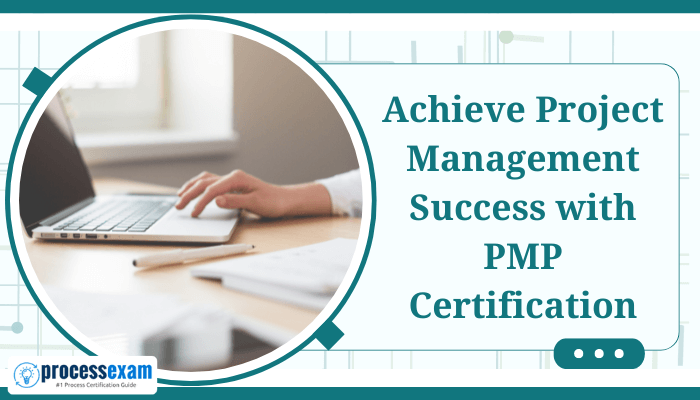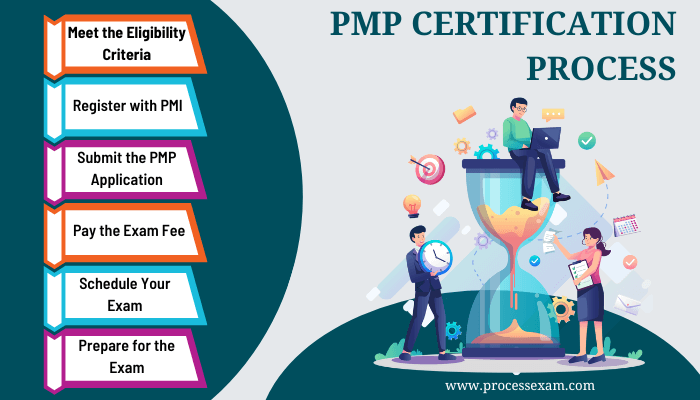
Are you ready to elevate your project management career to the next level? As businesses continue to scale in complexity, the demand for certified professionals with proven project management skills is growing exponentially. If you’re an IT professional or a student in project management, you’ve likely heard of the Project Management Professional (PMP) certification - one of the most recognized credentials globally. With this certification in hand, you can unlock new job opportunities, command higher salaries, and showcase your ability to lead successful projects.
The question is: What makes the PMP certification so sought after, and how can you leverage it to secure your future in the world of project management?
Trending Topics in Project Management: Agile, Digital Transformation, and More
In recent years, buzzwords like Agile, Digital Transformation, and Scrum have dominated the project management landscape. The PMP exam now reflects these changes, ensuring that certified professionals are equipped to manage modern, complex projects. Agile methodologies, hybrid approaches, and the impact of digital transformation are key focus areas for project managers today. With PMP certification, you'll have the knowledge and skills to excel in these evolving areas, positioning yourself at the forefront of your field.
A Comprehensive Look at the PMP Certification
In this article, we’ll explore everything you need to know about the PMP certification, from its benefits to exam preparation, and why it’s a must-have for IT professionals and students aiming for career advancement. If you’re looking for a comprehensive guide on how to excel in project management, you’ve come to the right place.
1. What is PMP Certification?
The Project Management Professional (PMP) certification, governed by the Project Management Institute (PMI), is the gold standard for project managers across industries. It validates your ability to lead teams, handle projects effectively, and ensure timely project completion within budget and scope. The PMP is not just another certificate; it’s a globally acknowledged credential that proves your expertise in both traditional and agile project management methodologies.
Whether you work in IT, construction, healthcare, or any other sector, the PMP certification showcases your ability to manage projects across various domains.
2. PMP Certification Exam Breakdown
Here’s what you need to know about the PMP exam:
-
Exam Name: Project Management Professional
-
Code: PMP
-
Exam Duration: 230 minutes
-
Number of Questions: 180 multiple-choice questions
The questions are designed to test your practical knowledge, covering the three performance domains: People, Process, and Business Environment. This structure reflects the real-life scenarios you’ll encounter as a project manager, making the exam highly relevant to your future career.
Why PMP Certification Matters in the IT Industry?
In the fast-paced world of IT, project management is critical to success. IT professionals often find themselves managing complex systems, coordinating cross-functional teams, and ensuring that technological solutions are delivered on time. A PMP certification can set you apart by providing:
-
Credibility: PMP certification is a mark of excellence. It shows employers that you possess the skills to lead projects, solve problems, and meet deadlines.
-
Increased Earning Potential: Certified PMP professionals earn, on average, 25% more than their non-certified counterparts.
-
Global Recognition: As a globally recognized certification, PMP opens doors to job opportunities not just locally, but internationally.
-
Mastery of Agile and Waterfall: IT projects often require a hybrid approach combining agile and traditional methodologies. PMP prepares you for both, making you versatile in different project environments.
PMP Certification Requirements
To apply for the PMP exam, you must meet certain prerequisites, which ensure that you possess adequate experience in project management. Here are the two options:
With a Four-Year Degree:
-
36 months leading projects.
-
35 hours of project management education/training or a CAPM® Certification.
With a High School Diploma or Associate Degree:
-
60 months leading projects.
-
35 hours of project management education/training or a CAPM® Certification.
PMP Certification Process: Step-by-Step

Here’s a detailed guide to earning your PMP certification:
Step 1: Meet the Eligibility Criteria
-
Before applying, ensure you have the required experience and educational qualifications.
Step 2: Register with PMI
-
Become a PMI member for reduced exam fees and access to exclusive resources, including the PMBoK Guide (Project Management Body of Knowledge).
Step 3: Submit the PMP Application
-
Create an account on the PMI website and fill out your application, including your education, project management experience, and training.
Step 4: Pay the Exam Fee
-
Once your application is reviewed and approved, pay the fee of $279 for members, and $565 for non-members.
Step 5: Schedule Your Exam
-
You can take the PMP exam online or at a test center. The exam is 230 minutes long and includes 180 multiple-choice questions.
Step 6: Prepare for the Exam
Use the following study tools to enhance your preparation:
-
PMBoK Guide: The foundational textbook for the PMP exam.
-
PMP Exam Prep Books: Look for bestsellers like PMP Exam Prep by Rita Mulcahy.
-
PMP Practice Tests: Practice tests are essential for gauging your readiness.
Benefits of PMP Certification
PMP certification provides several distinct benefits to IT professionals:
Career Advancement
-
With PMP certification, IT professionals can access senior-level positions such as IT Project Manager, Program Manager, and even Chief Information Officer (CIO). PMP-certified individuals are consistently preferred for leadership roles.
Competitive Edge
-
The PMP designation sets you apart from your peers. Employers recognize PMP-certified candidates as well-versed in project management principles and best practices, which boosts their confidence in your ability to succeed.
Job Security
-
Organizations value PMP-certified project managers because they can handle complex projects efficiently. By earning this certification, you position yourself as a crucial asset within your company.
How to Prepare for the PMP Exam?
The PMP exam is challenging, but with the right preparation strategy, you can pass it on your first attempt. Here are some tips to help you succeed:
1. Understand the PMP Exam Content Outline
The PMP exam isn’t just about memorizing project management terminology. It requires a deep understanding of key principles, methodologies, and real-world applications. PMI divides the content outline into three domains and includes tasks that reflect current project management practices. Familiarizing yourself with these domains early on will give you a strategic advantage.
2. Enroll in PMP Training Courses
One of the PMP certification requirements is to complete 35 hours of formal project management education. Enrolling in a PMP training course will not only fulfill this requirement but also provide structured learning that will help you grasp complex topics more effectively.
Additionally, several online platforms offer flexible training options, including PMI’s own PMI Study Hall, as well as third-party providers like ProcessExam. By choosing one of these platforms, you'll be able to tailor your learning experience while ensuring you stay on track for success.
3. Use PMP Practice Tests and Mock Exams
To maximize your chances of success, it’s essential to practice with PMP exam questions and mock tests. These practice tests mimic the actual exam format and help you get comfortable with the types of questions you’ll face. Review any incorrect answers carefully and revisit weak areas.
4. Leverage Study Resources
PMI provides several resources, including a comprehensive PMP Handbook and Examination Content Outline. Additionally, joining PMP study groups or forums can help you learn from others, share knowledge, and stay motivated throughout your study journey.
PMP Credential Maintenance
After passing the exam, maintaining your PMP credential is crucial. You must earn 60 Professional Development Units (PDUs) every three years to renew your certification. PDUs can be earned through:
-
Taking part in PMI events or webinars.
-
Completing online courses.
-
Volunteering as a project manager.
This continuous learning ensures that PMP holders stay up-to-date with the latest project management trends.
Motivational Factors for Pursuing PMP Certification
It’s easy to feel overwhelmed by the requirements and time commitment needed to pursue PMP certification, but the rewards far outweigh the effort. Think of PMP certification as an investment in your future - one that can unlock doors to leadership roles, higher salaries, and greater professional satisfaction. Whether you're an aspiring project manager or a seasoned IT professional, PMP will significantly impact your career trajectory.
Conclusion
The PMP certification is more than just a title; in fact, it’s a gateway to career advancement, better pay, and global recognition. Whether you're an IT professional managing complex projects or a student looking to break into the project management field, earning PMP certification can significantly elevate your career prospects.
Moreover, the investment in time and resources to prepare for the exam will undoubtedly pay off tenfold not only in terms of opportunities but also in career growth.
Take the leap today and start your PMP certification journey. By earning this credential, you will not only advance your career but also become part of a global network of elite project managers.
FAQs
What is PMP Certification?
-
PMP Certification is a globally recognized credential offered by PMI, demonstrating expertise in project management across industries.
How long does it take to prepare for the PMP exam?
-
Preparation usually takes 2-3 months, depending on prior knowledge and study habits.
What is the PMP exam cost?
-
The PMP exam costs $279 for PMI members and $565 for non-members.
Can the PMP exam be taken online?
-
Yes, the PMP exam can be taken online or at a test center.
What is the passing score for the PMP exam?
-
PMI no longer specifies a passing score, as it varies based on the exam difficulty.
